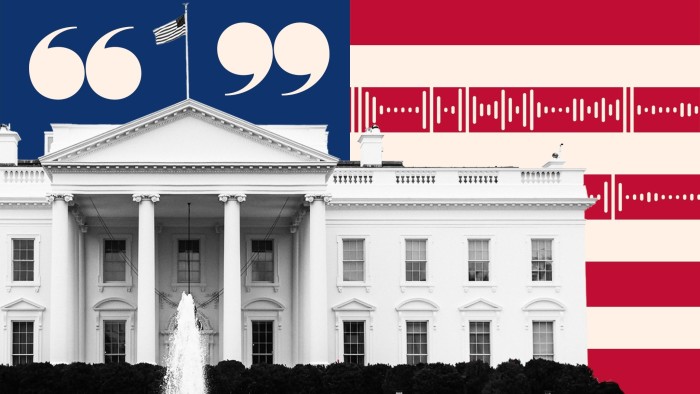Unlock the US Election Countdown newsletter for free
The stories that matter on money and politics in the race for the White House
The Biden administration is ready to release more oil from its strategic stockpile to halt any jump in petrol prices this summer, as the White House battles to contain inflation ahead of the November election.
Amos Hochstein, President Joe Biden’s closest adviser on energy, said that prices at the pump were “still too high for many Americans” and he would like to see them “cut down a little bit further”.
“We will do everything we can to make sure that the market is supplied well enough to ensure as low price as possible for American consumers,” Hochstein told the Financial Times.
“I think that we have enough in the SPR if it’s necessary,” he added, referring to the country’s Strategic Petroleum Reserve.
Hochstein’s comments come as Biden tries to overcome voter anxiety about his handling of the economy with less than five months to go before the election.
The Biden administration has pledged measures including curbs on healthcare costs and banking fees in a bid to reduce inflation, which has fallen by about 60 per cent since hitting multi-decade highs in 2022.
Any decision in the coming months to draw more barrels from the SPR — which Biden has tapped more than any of his predecessors — would anger Republicans who have accused him of “political abuse and misuse” of the stockpile.
US petrol prices averaged $3.45 a gallon on Sunday, according to the AAA motoring group, down slightly from a year ago but still more than 50 per cent higher than when Biden succeeded Donald Trump as president in 2021.
Despite his limited ability to influence prices, many motorists blame the Democratic president for the squeeze at the pump.
“I don’t like Biden,” said David Gonzales Broche, an Uber driver in Las Vegas, Nevada, where prices averaged $4.05 a gallon on Sunday. “For gasoline I’m paying almost $5 a gallon. Before, it was $2-something — when we had Trump.”
The former president has used petrol prices as an attack line against Biden in his campaign for the White House, claiming the administration’s clean energy and climate polices have constrained US oil output.
“We’re going to drill, baby drill,” Trump told supporters at a rally in Las Vegas last weekend. “We’re going to bring down your energy costs.”
The US under Biden has hit new record high levels of oil and gas output, and is exporting more than when Trump was president.
The SPR was set up almost half a century ago as a buffer against jumps in oil prices in times of supply disruption. Biden announced releases from the reserve in late 2021 and again in 2022 as petrol prices rose following Russia’s full-scale invasion of Ukraine.

Opec+ this month extended oil supply cuts in a bid to bolster prices. Brent crude settled at $82.62 a barrel on Friday, having risen 7 per cent in the past two weeks. Goldman Sachs expects the benchmark to reach $86 a barrel next quarter.
“Any president facing a tough re-election, especially in a fragile economy, is going to be anxious about the risk of a gasoline price spike,” said Bob McNally, a former energy adviser to George W Bush and head of consultancy Rapidan Energy.
In a letter sent last month to energy secretary Jennifer Granholm, senior Republican politicians called on the administration to “ensure that the SPR is not abused for political purposes in this election year” and described Biden’s SPR release in 2022 as “a transparent attempt to influence the midterm elections”.
Have your say

Joe Biden vs Donald Trump: tell us how the 2024 US election will affect you
The administration has gradually refilled the SPR since it was drained under Biden to its lowest levels since 1983, arguing it has done so at a good rate of return for taxpayers by selling the oil at higher market prices and buying barrels back at lower levels.
Hochstein said the administration would keep replenishing the reserve until the oil was needed again.
“We will continue to purchase into next year, until we think that the SPR has the volume that it needs again to serve its original purpose of energy security,” he said.

